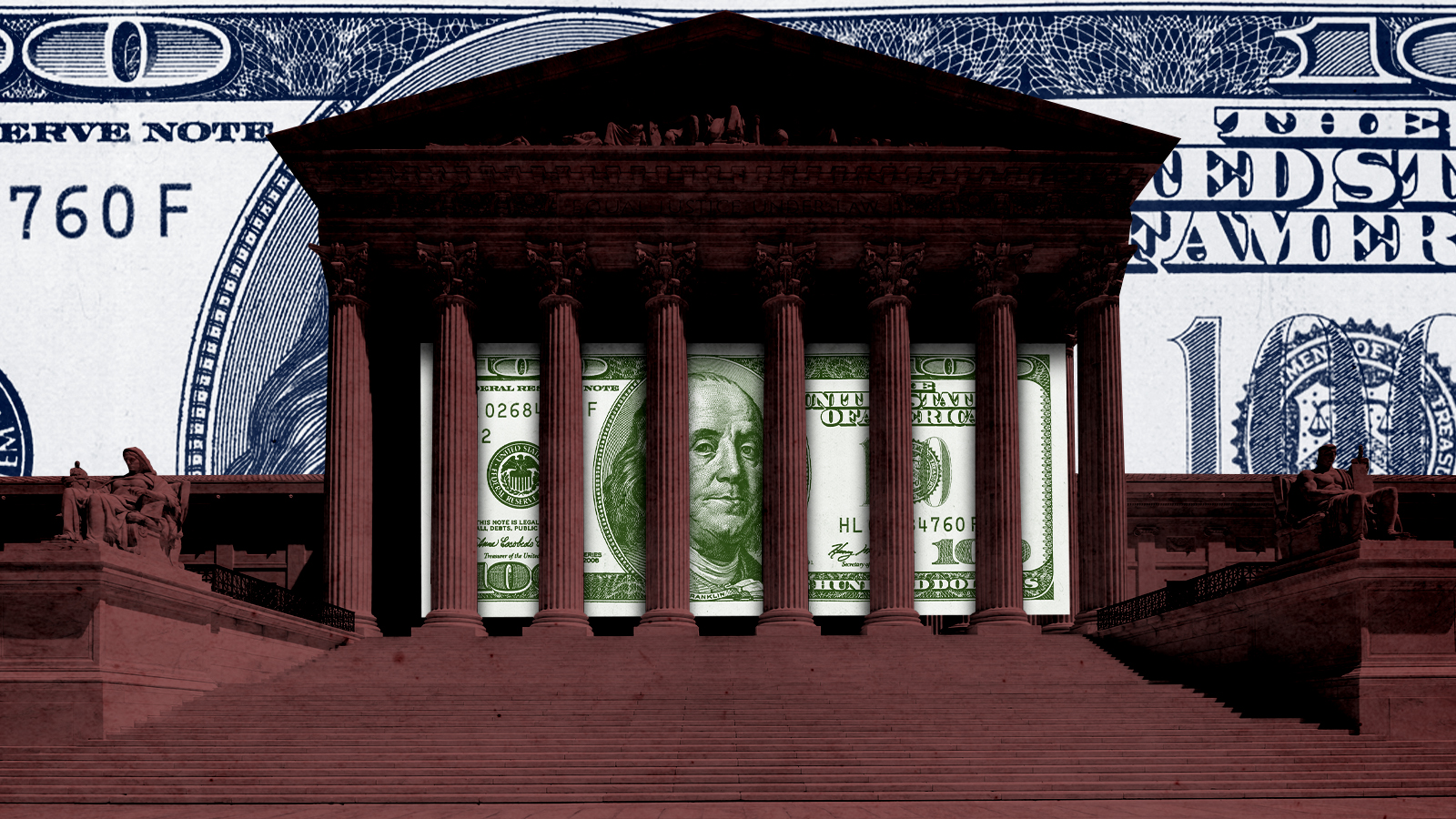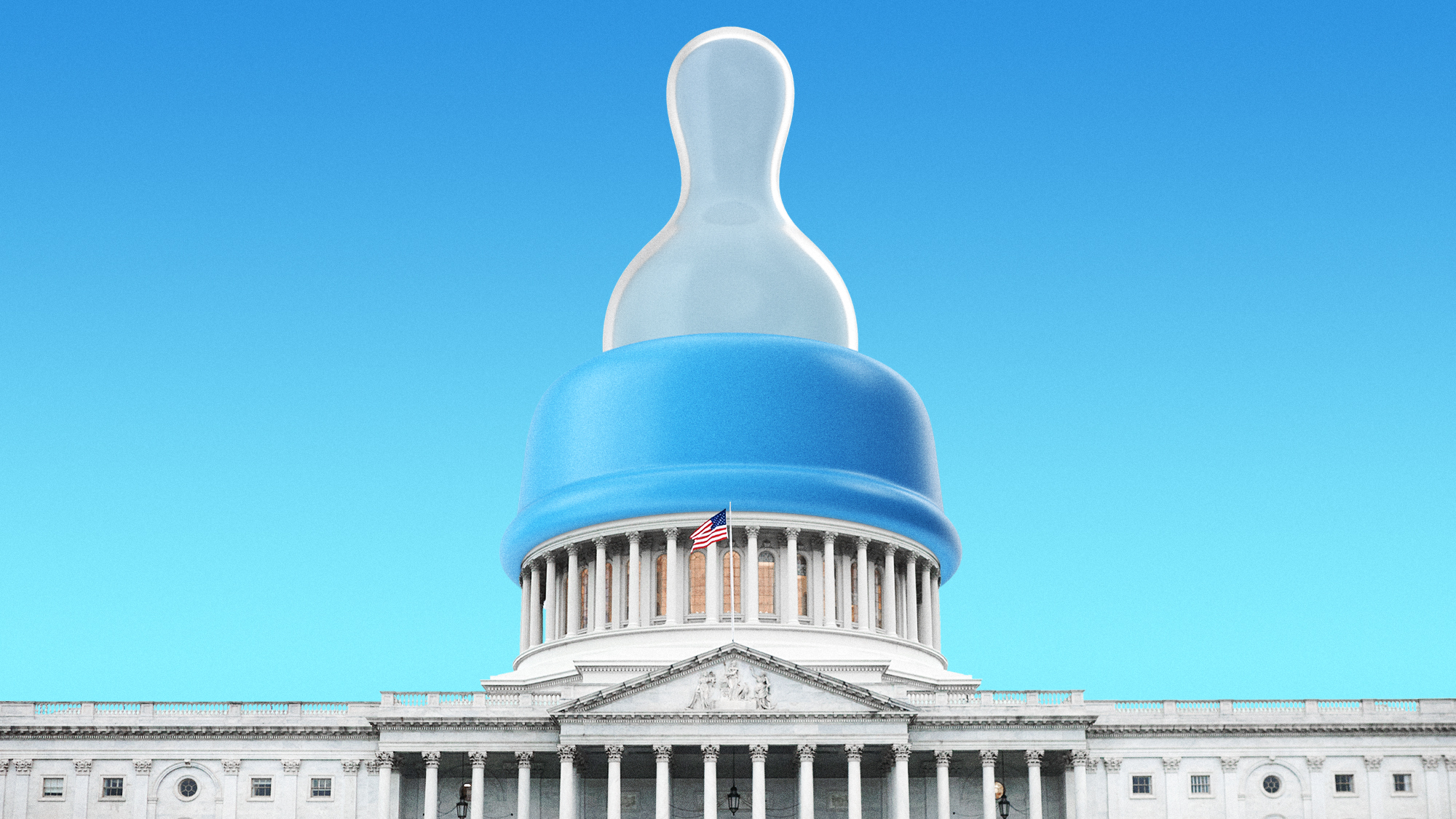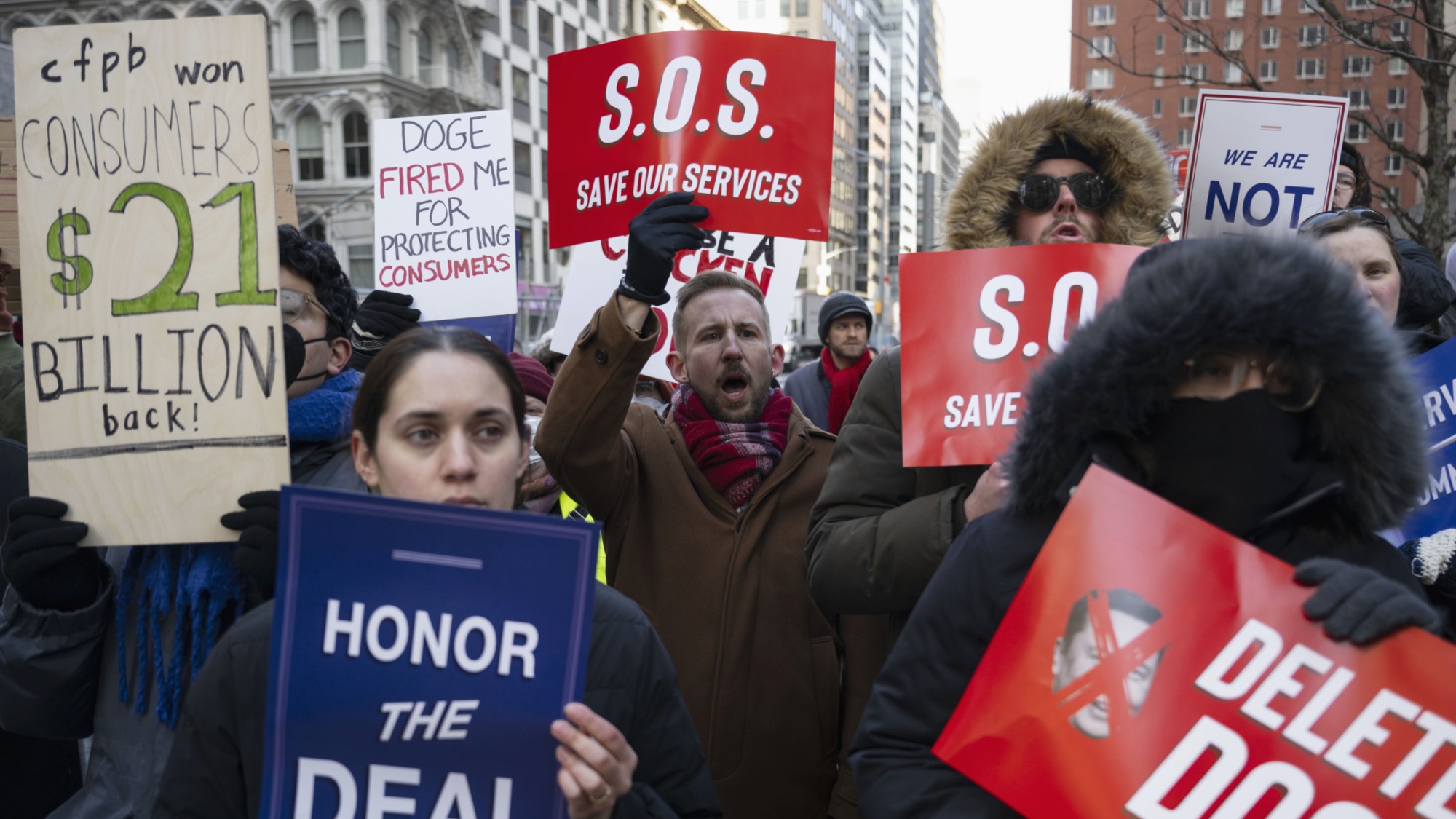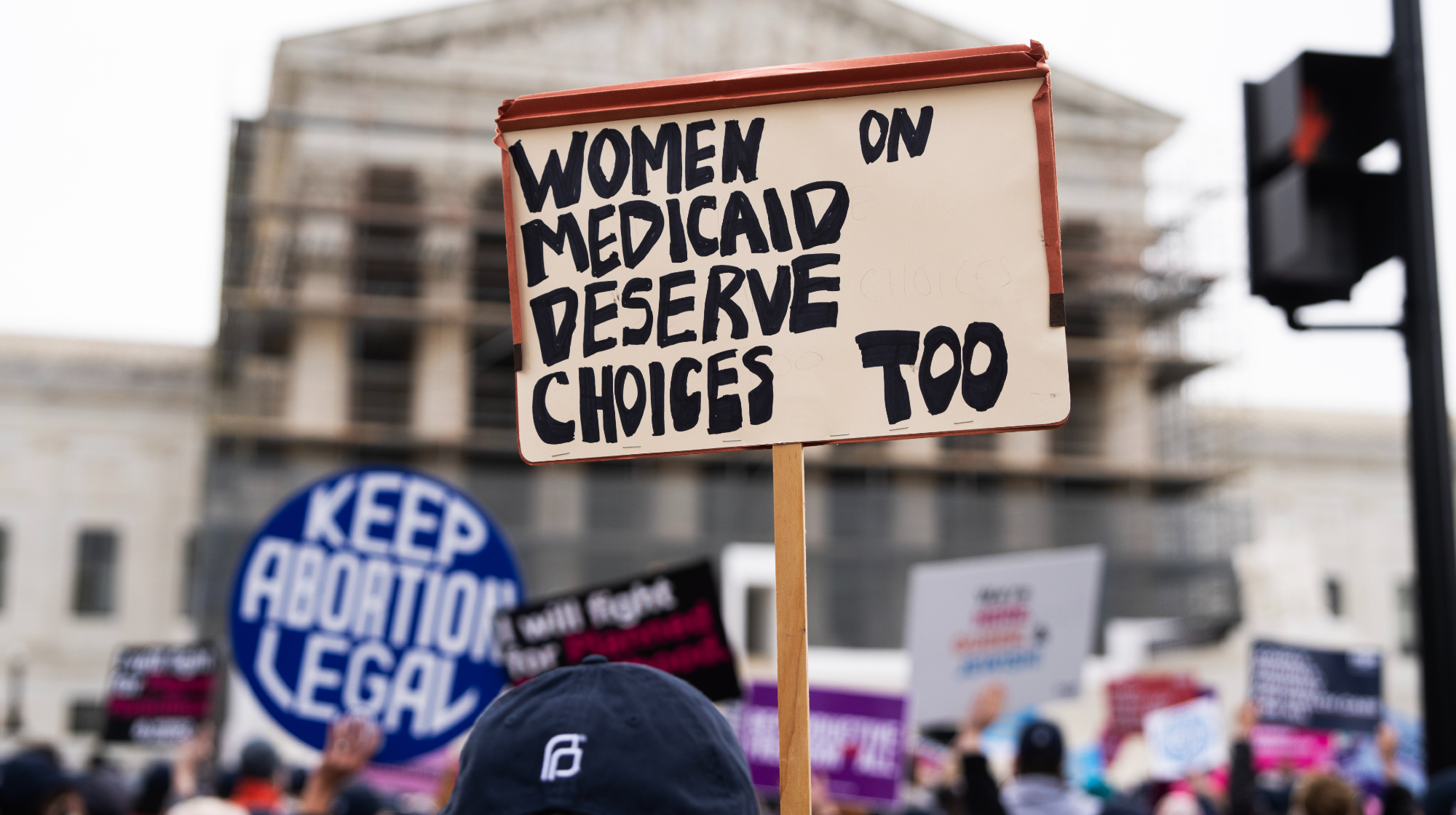The Roberts Court thinks plutocrats should be able to buy the government in secret
Supreme Court conservatives have invented a right to corruption


The Supreme Court took a big step towards oligarchy on Thursday with Americans for Prosperity Foundation vs. Bonta, a 6-3 decision that invalidated a California law requiring charities to report their major donors to the state government. Chief Justice John Roberts wrote the majority opinion, with Justice Sonia Sotomayor in dissent with the other two liberals.
The important impact of this decision is not what it will do in California so much as the precedent it sets. It almost certainly lays the groundwork for further challenges to political donor disclosure requirements in all circumstances. Previous conservative rulings opened a floodgate of bribery and corruption in politics, and now the court will prevent the American people from being able to find out who is buying the government.
Previously, the court had supported this kind of disclosure requirement. In 2010, Citizens United vs. FEC abolished limits on independent political spending by corporations and political committees, but still upheld disclosure requirements for super PACs. The decision created a tsunami of political bribery and corruption and, when combined with several other rulings that made it nearly impossible to prosecute politicians for corruption (like former Republican governor of Virginia Bob McDonnell), means that today rich people and corporations can buy legislators "over the counter like so many pounds of cheese."
Subscribe to The Week
Escape your echo chamber. Get the facts behind the news, plus analysis from multiple perspectives.

Sign up for The Week's Free Newsletters
From our morning news briefing to a weekly Good News Newsletter, get the best of The Week delivered directly to your inbox.
From our morning news briefing to a weekly Good News Newsletter, get the best of The Week delivered directly to your inbox.
There is just one remaining inconvenience for oligarchs who are rigging the political system: people can sort of find out about it. The First Amendment is the excuse Roberts settled on to remove this burdensome obligation.
In Americans for Prosperity Foundation (which was was brought by a bunch of right-wing advocacy groups), Roberts holds that the disclosure requirement is facially invalid — a sweeping phrase meaning it is always unconstitutional — and argues that the requirement is necessarily a burden on First Amendment rights of association. As such, it must be "narrowly tailored" to a government interest, he says, which California supposedly didn't do. Though he points to some instances in which donors had been harassed or threatened, his argument does not require anyone to actually demonstrate a real burden. It would therefore be virtually impossible for California to rewrite its disclosure law to comply.
It's not hard to see what is going on here: Laws that mandate disclosure of other political contributions are going down. As Sotomayor notes in her dissent, "Today's analysis marks reporting and disclosure requirements with a bull's-eye. Regulated entities who wish to avoid their obligations can do so by vaguely waving toward First Amendment 'privacy concerns.'" (I would guess that public records of personal donations to individual candidates will stay put, since oligarchs typically prefer to funnel their spending through committees and nonprofits).
It goes without saying that the argument Roberts is preparing to reach is utter trash. The idea that rich people's freedom of association rights are harmed by any kind of disclosure of their political contributions to such a degree that it outweighs the public interest in knowing if their representatives have ulterior motives is just as ridiculous as thinking money is speech. To adapt Anatole France, "The law, in its majestic equality, allows the rich and the poor alike to contribute billions into a dark money slush fund for political bribery."
This is why one often sees this multi-step approach when the Supreme Court is legislating from the bench, as it invents phony-baloney reasons why it gets to rule over us all. It would be rather scandalous to simply hand down some decision saying rich people get to spend unlimited sums in politics, and also nobody is allowed to know when they are doing this. Smart justices ease their way into unjustifiable opinions — in this case, first by legalizing corruption, then making up a pretext for oligarch anonymity in one narrow context that is clearly intended to apply broadly, so that they've got a precedent to cite and the right-wing media machine has time to repeat the fake rationale a billion times.
The only positive thing about this case — and the other big decision from this week, in which the court cored out most of the remaining shreds of the Voting Rights Act — is that it illustrates the stakes. These decisions are totally illegitimate. Not only does Justice Neil Gorsuch hold a seat that was unconstitutionally stolen from President Obama, and not only were he, Brett Kavanaugh, and Amy Coney Barrett nominated by a president that lost the popular vote and confirmed by a Senate majority representing a minority of the American people, the Constitution does not actually give the Supreme Court the power to overturn laws. Judicial review was invented out of thin air in Marbury vs. Madison, and for almost its entire history it has been used to enshrine slavery, racism, Jim Crow apartheid, corporate tyranny, and other horrific doctrines.
Congressional Democrats would be entirely within their rights adding more seats to the court to erase the conservative majority — or President Biden could simply decide to stop respecting judicial review, which would accomplish the same thing much more easily. Given the extreme nature of these decisions, it would be wise to assume the conservative majority will invent some pretext to strike down any protection of voting rights or campaign finance reforms Democrats might pass. For American democracy to survive, the reactionary tyrants on the Supreme Court must be brought to heel.
A free daily email with the biggest news stories of the day – and the best features from TheWeek.com
Ryan Cooper is a national correspondent at TheWeek.com. His work has appeared in the Washington Monthly, The New Republic, and the Washington Post.
-
 July 15 editorial cartoons
July 15 editorial cartoonsCartoons Tuesday's political cartoons include the dangers of a deficit, Putin shooting fish in a barrel, Kermit the Frog, and Barack Obama's message to Democrats
-
 Mortgage reform: is Rachel Reeves betting the house on City rules shake-up?
Mortgage reform: is Rachel Reeves betting the house on City rules shake-up?Today's Big Question Reforms could create up to 36,000 additional mortgages next year
-
 The 'extraordinary' trials of Constance Marten and Mark Gordon
The 'extraordinary' trials of Constance Marten and Mark GordonThe Explainer Couple claim they were 'misunderstood' after going on the run with newborn baby
-
 Supreme Court: Ceding more power to Trump?
Supreme Court: Ceding more power to Trump?Feature SCOTUS has given Trump a victory by ending nationwide injunctions, limiting judges' power to block presidential orders
-
 The Supreme Court and Congress have Planned Parenthood in their crosshairs
The Supreme Court and Congress have Planned Parenthood in their crosshairsTalking Points Trump's budget bill and the court's ruling threaten abortion access
-
 SCOTUS greenlights Trump's federal firings
SCOTUS greenlights Trump's federal firingsspeed read The Trump administration can conduct mass federal firings without Congress' permission, the Supreme Court ruled
-
 U.S. v. Skrmetti: Did the trans rights movement overreach?
U.S. v. Skrmetti: Did the trans rights movement overreach?Feature The Supreme Court upholds a Tennessee law that bans transgender care for minors, dealing a blow to trans rights
-
 The last words and final moments of 40 presidents
The last words and final moments of 40 presidentsThe Explainer Some are eloquent quotes worthy of the holders of the highest office in the nation, and others... aren't
-
 Supreme Court lets states ax Planned Parenthood funds
Supreme Court lets states ax Planned Parenthood fundsSpeed Read The court ruled that Planned Parenthood cannot sue South Carolina over the state's effort to deny it funding
-
 'If smoke can affect health early in life, it also can affect life's end'
'If smoke can affect health early in life, it also can affect life's end'Instant Opinion Opinion, comment and editorials of the day
-
 Supreme Court clears third-country deportations
Supreme Court clears third-country deportationsSpeed Read The court allowed Trump to temporarily resume deporting migrants to countries they aren't from
